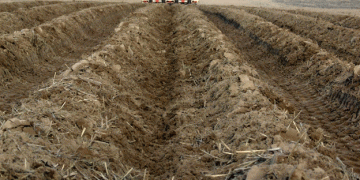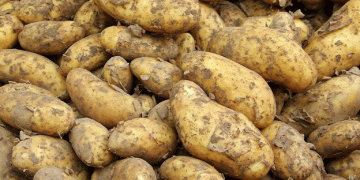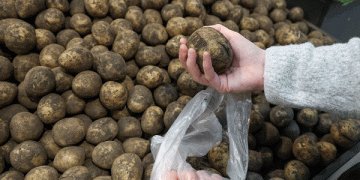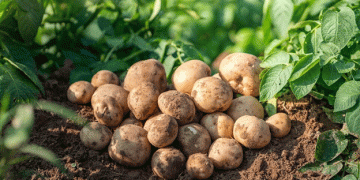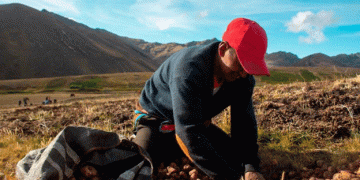Belarus insists on removing restrictions on the supply of potash fertilizers and including this issue on the agenda of international structures that are making efforts to prevent a global food crisis. This was stated by Deputy Foreign Minister Yury Ambrazevich, answering a question from a BelTA correspondent.
The question for the Deputy Foreign Minister related to the recent comment made by UNCTAD Secretary General Rebecca Greenspan at a press conference in New York about the efforts being made by the UN Group to remove obstacles in the supply of food and fertilizer from Russia. In particular, she said that the UN Group is working hard and trying to remove obstacles in the supply of food and fertilizer from Russia in terms of finance, insurance, delivery and transport. In this regard, the question arose why the topic of removing barriers to the supply of Belarusian potash fertilizers was not touched upon in any way. And will the international effort that Greenspan speaks of be exhaustive if the world’s largest fertilizer producer, Belarus, falls out of the chain?
“Belarus would like to welcome real progress in resolving the issue of removing obstacles to the access of Russian goods to international markets, including Russian mineral fertilizers,” Yuri Ambrazevich said in response. “The easier it is for Russia to ensure the freedom of its exports, the more opportunities it has will be for mutually beneficial trade with Belarus, for the purchase of Belarusian goods, for the implementation of other significant cooperation projects within the framework of the Union State. Actually, this is also true in the opposite direction – with regard to the freedom of Belarus’ exports.”
At the same time, he noted the insufficient intensification of action by both the UN Secretary General and the UNCTAD Secretary General in the face of the potential threat of food shortages for the least developed countries and the growing costs for developing countries in ensuring their own food security. Although, of course, everyone understands that the UN structures, as well as the heads of their secretariats, are limited by the political will of the member countries, the deputy minister added.
“With regard to Belarusian potash fertilizers, Mr. Guterres (UN Secretary General. – Approx. BelTA) has first-hand information, personally from the President of the Republic of Belarus. Our diplomats conveyed it to all involved UN officials,” the Deputy Foreign Minister noted. “Together At the same time, it should be frankly noted that the fact of illegal restrictions on the access of Belarusian potash fertilizers to the international market is still diligently avoided by international structures.
Yuri Ambrazevich recalled that Belarus is among the top three world producers of potassium chloride along with Russia and Canada. “Before the sanctions, Belarusian potash met almost 20% of world demand. The shortage of potash caused by its short supply to the world market from Belarus and, of course, from Russia, became a catalyst for a surge in fertilizer prices. Today, no one in the world is able to effectively replace Belarusian potash with market. This is a complex and lengthy both technological and economic task. All the sounding arguments about the allegedly rapid increase in sales volumes by some alternative suppliers are nothing more than talking about the problem,” he stated.
In his opinion, everyone in the world should know, and first of all people in developing countries, that if Belarusian potash regained unhindered access to the world market today, the price of fertilizers would drop significantly, perhaps almost by half. “People in developing countries should know that their bread, rice or beans are becoming more expensive as a result of the sanctions policy of the US and European Union governments,” said Yuri Ambrazevich.
“In this regard, I believe that the efforts of the UN, UNCTAD, in particular in the person of their first leaders, to solve the whole range of problems in the field of global food security should be continued. And the topic of Belarusian potassium should not only not be bypassed, but should be at the top of the list tasks to be solved,” the deputy minister stressed.


